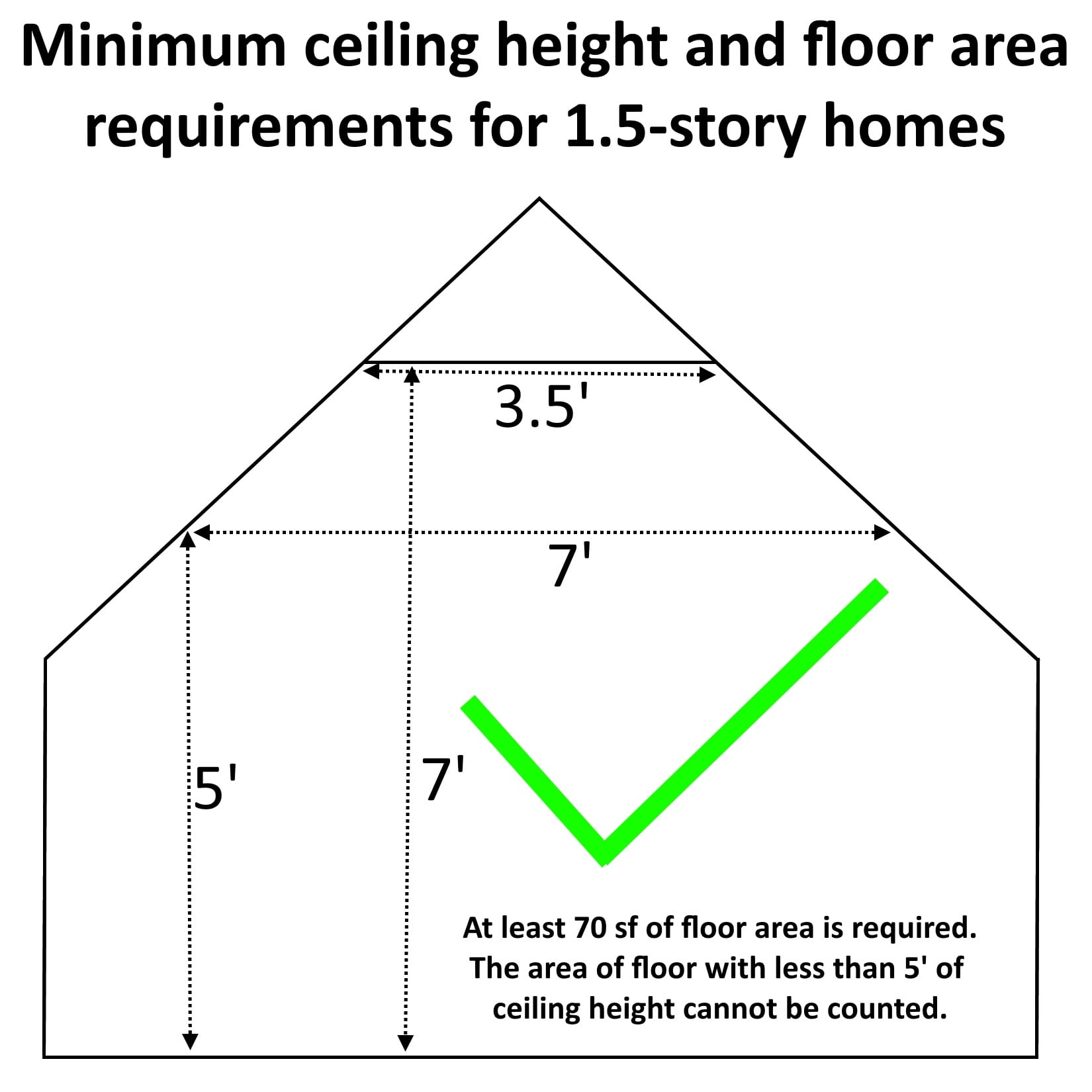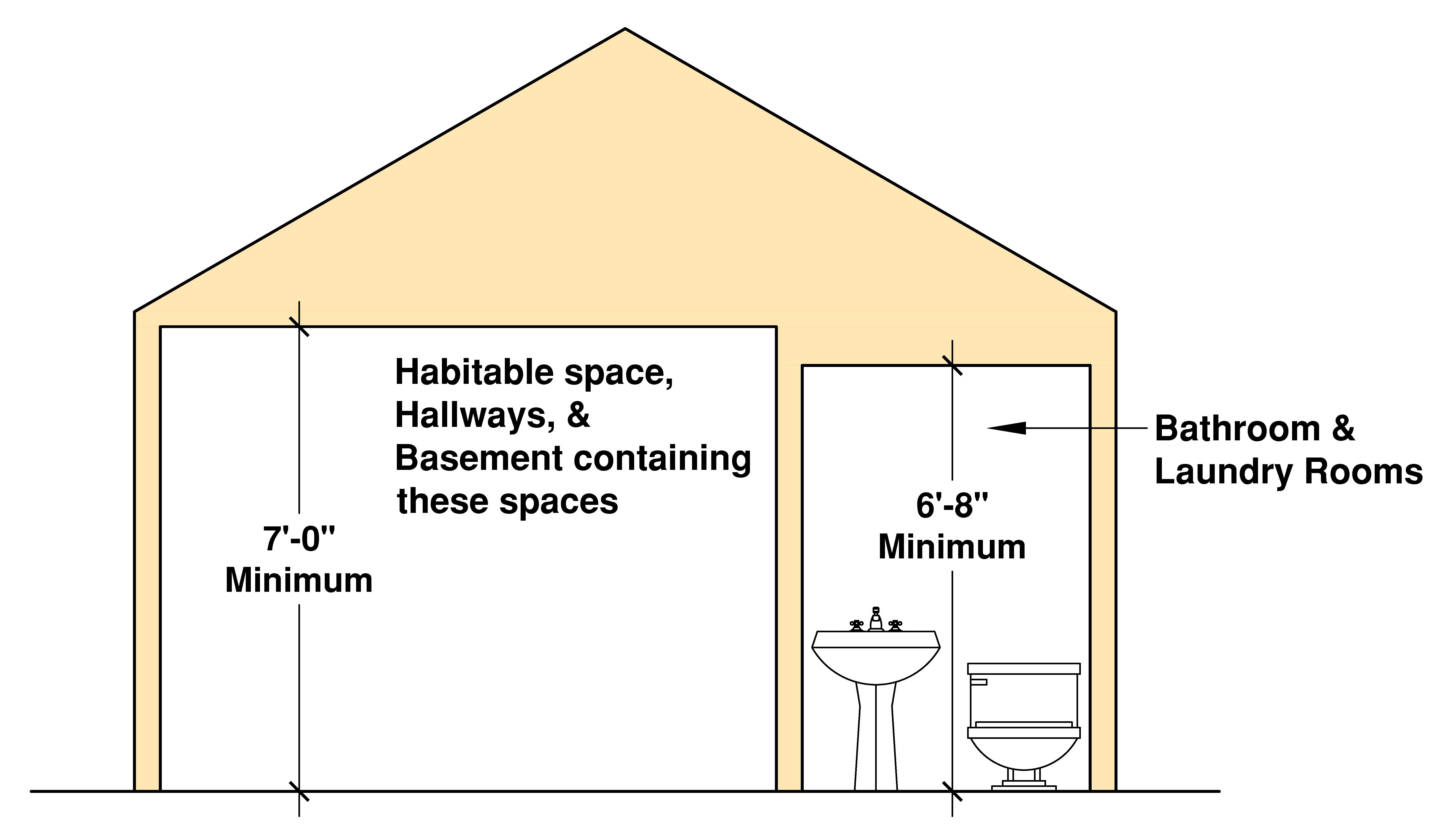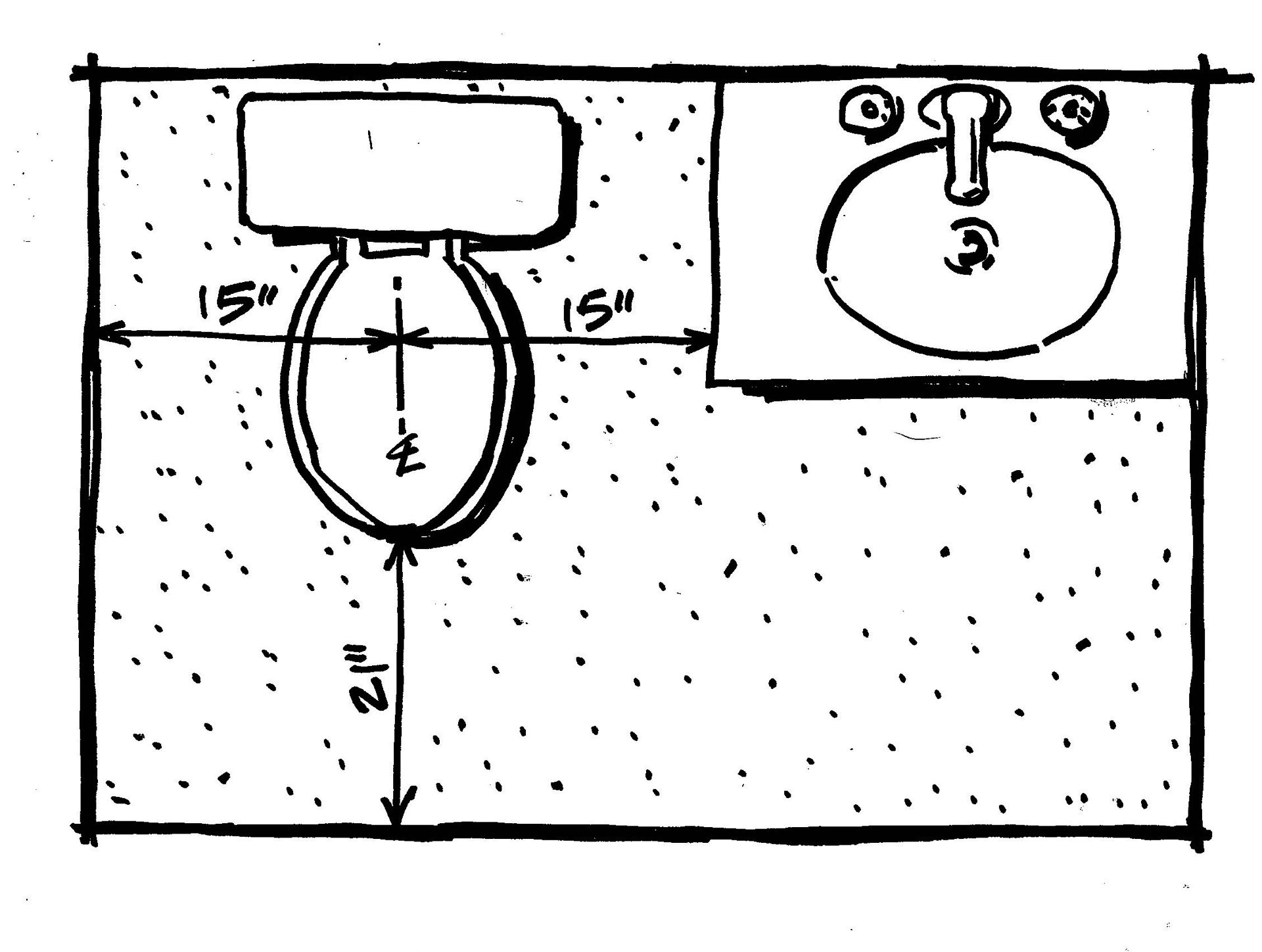Do you feel cramped and claustrophobic in your home? If so, it may be time to consider raising the ceiling height. Adequate ceiling height is a critical factor in creating a comfortable and inviting living space.

Bedroom ceiling height and floor area requirements for 1.5-story homes – Source structuretech.com
The Importance of Adequate Ceiling Height
Low ceilings can make a room feel cramped and confining. They can also make it difficult to breathe and move around. In contrast, high ceilings create a sense of spaciousness and airiness. They can also make a room feel more inviting and luxurious.

Heat Cost Allocators | Brunata – Source brunata.com
What is Adequate Ceiling Height?
The ideal ceiling height for a residential building depends on a number of factors, including the size of the room, the style of the architecture, and the personal preferences of the occupants.
As a general rule of thumb, however, most experts recommend a ceiling height of at least 8 feet. For rooms with high ceilings, such as living rooms and dining rooms, a ceiling height of 9 or 10 feet may be more appropriate.

Solar Comfort Tool – Source payette.github.io
The History and Myth of Ceiling Height
The history of ceiling height is a long and winding one. In the early days of architecture, ceilings were often very low, as they were made of wood or stone and it was difficult to support a heavy ceiling.
Over time, as building techniques improved, ceilings became higher. In the 18th and 19th centuries, high ceilings were a sign of wealth and status. In the 20th century, however, ceilings began to get lower again as a way to save on construction costs.
![]()
What Is The Minimum Ceiling Height For A Habitable Room – Source homeminimalisite.com
The Hidden Secrets of Ceiling Height
There are a number of hidden benefits to having adequate ceiling height. For example, high ceilings can:
- Improve air circulation.
- Make a room feel more spacious and inviting.
- Reduce noise levels.
- Increase the amount of natural light in a room.

LANDMARK CUSTOM HOMES Estate lifestyle Redefined! Spectacular – Source www.pinterest.com
Recommendations for Ceiling Height
When it comes to ceiling height, there is no one-size-fits-all solution. The ideal ceiling height for your home will depend on a number of factors, including the size of the room, the style of the architecture, and your personal preferences.
However, most experts recommend a ceiling height of at least 8 feet. For rooms with high ceilings, such as living rooms and dining rooms, a ceiling height of 9 or 10 feet may be more appropriate.

Minimum Residential Ceiling Heights Per the IRC | Explained! – Source buildingcodetrainer.com
Ceiling Height and Room Size
The size of the room is one of the most important factors to consider when determining ceiling height. A small room with a high ceiling can feel cramped and uncomfortable. Conversely, a large room with a low ceiling can feel dark and oppressive.
As a general rule of thumb, the ceiling height should be proportional to the size of the room. For example, a small room should have a ceiling height of around 8 feet, while a large room should have a ceiling height of around 9 or 10 feet.

Minimum Ceiling Height Above Toilet | Shelly Lighting – Source shellysavonlea.net
Ceiling Height and Architectural Style
The architectural style of your home is another important factor to consider when determining ceiling height. Some architectural styles, such as Victorian and Georgian, are characterized by high ceilings. Other architectural styles, such as Colonial and Craftsman, are characterized by lower ceilings.
When choosing a ceiling height for your home, it is important to consider the architectural style of the home. A high ceiling may not be appropriate for a home with a Colonial or Craftsman style.

Multi-Occupied Residential Buildings & Fire Safety (England – Source www.sheadvises.co.uk
Fun Facts of Ceiling Height
Here are a few fun facts about ceiling height:
- The tallest residential building in the world is the Burj Khalifa in Dubai. It has a ceiling height of over 18 feet.
- The shortest residential building in the world is the Hobbit House in Wales. It has a ceiling height of just over 3 feet.
- The average ceiling height in a new home built in the United States is around 8 feet.

Industrial Basics – Why Care About Ceiling Height? – Meybohm Commercial – Source meybohmcommercial.com
How to Change Ceiling Height
If you are not happy with the ceiling height in your home, there are a number of ways to change it. One option is to lower the ceiling. This can be done by adding a drop ceiling or by installing a suspended ceiling.
Another option is to raise the ceiling. This can be done by removing the existing ceiling and installing a new one at a higher height.

Fan coil unit. Make sure you have adequate ceiling clearance and access – Source www.pinterest.com
What if I Can’t Change the Ceiling Height?
If you are unable to change the ceiling height in your home, there are a number of things you can do to make the most of the space you have.
- Use light colors on the walls and ceilings.
- Add mirrors to the walls.
- Use furniture with low profiles.
- Avoid cluttering the room with too much furniture or décor.
Listicle of Ceiling Height
- The ideal ceiling height for a residential building is between 8 and 10 feet.
- The ceiling height should be proportional to the size of the room.
- The architectural style of the home should be considered when choosing a ceiling height.
- There are a number of ways to change the ceiling height in a home.
- If you are unable to change the ceiling height, there are a number of things you can do to make the most of the space you have.
Question and Answer
- What is the ideal ceiling height for a residential building?
The ideal ceiling height for a residential building is between 8 and 10 feet. - What factors should be considered when choosing a ceiling height?
The size of the room, the architectural style of the home, and the personal preferences of the occupants should all be considered when choosing a ceiling height. - How can I change the ceiling height in my home?
The ceiling height in a home can be changed by lowering the ceiling or raising the ceiling. - What if I can’t change the ceiling height in my home?
If you are unable to change the ceiling height in your home, there are a number of things you can do to make the most of the space you have.
Conclusion of Adequate Ceiling Height For Residential Buildings
Adequate ceiling height is an important factor in creating a comfortable and inviting living space. By following the tips and advice in this article, you can choose the right ceiling height for your home and make the most of your space.